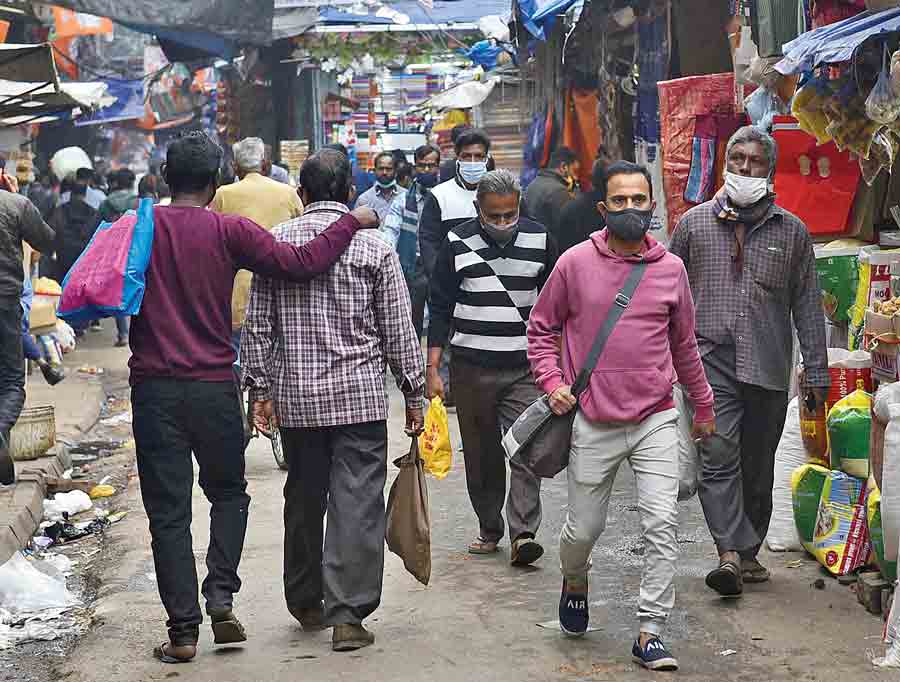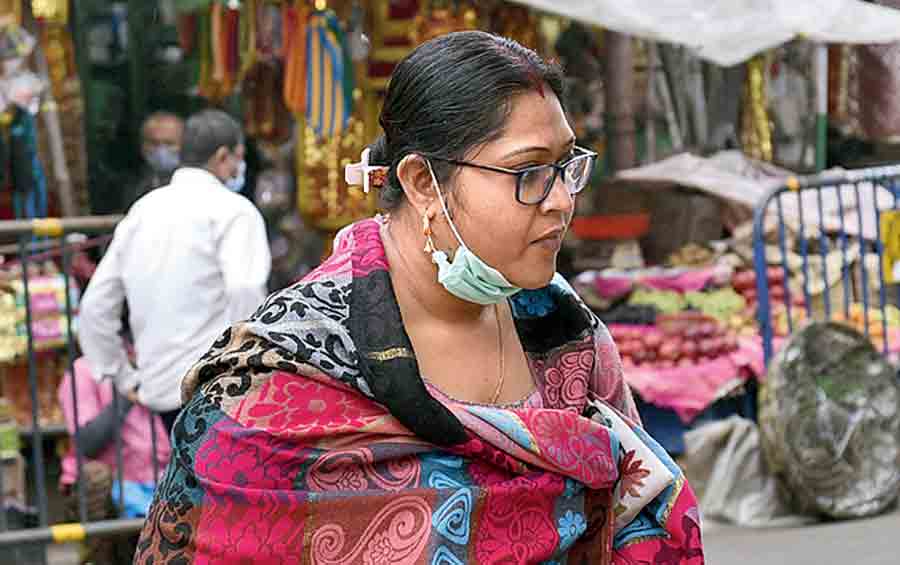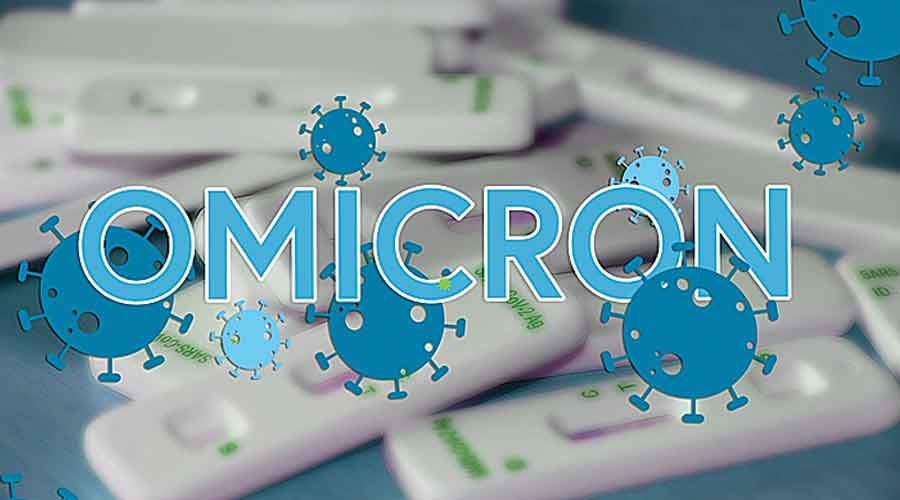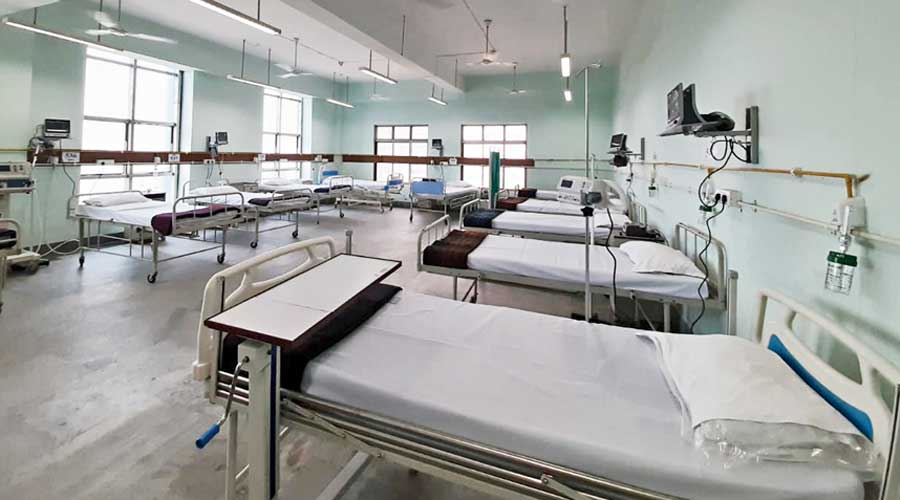Two in every 10 people in Bengal are still getting infected by the Delta variant of the novel coronavirus, the genome sequencing reports of the swab samples of several Covid positive persons have shown. Public health experts said this showed there was no room for complacency and one should not drop their guard.
The high number of delta variant presence in the genome sequencing could be the reason why many Kolkatans are still suffering from prolonged fever, cough, loss of smell and taste and shortness of breath.
The Telegraph reported on Thursday that the Omicron variant of the virus was found in 77.2 per cent of 1,499 swab samples that underwent genome sequencing till January 2.
The Delta variant was found in the rest — 22.8 per cent — of the samples, according to the state health department. Genome sequencing is done to ascertain what variant of virus had infected the person.
“This data shows that more than one-fifth of people in our state are still getting infected by the Delta variant. This reinforces what many doctors and public health experts have been saying — there is no reason to take things lightly,” said Abhijit Chowdhury, a public health expert and member of the Covid task force of the Bengal government.
“In absolute numbers, this means that a large number of people could still develop severe disease and need hospital care. Stay away from crowded places, wear a mask and get vaccinated against Covid.”
The current surge in daily new infections is because of the omicron variant that is spreading very fast, many doctors assume. The symptoms that have been noticed in an overwhelming majority of people getting infected in the current surge are runny nose, bodyache, headache and short-span fever.
The infection in the third wave is affecting the upper respiratory tract unlike the previous two waves when the impact was on the lower respiratory tract, said Sauren Panja, a critical care specialist at the Rabindranath Tagore International Institute of Cardiac Sciences (RTIICS).
The symptoms that were common during the second wave and that doctors associated with the delta variant were loss of smell and taste, shortness of breath and drop in oxygen levels.
A 67-year-old resident of Sovabazar in north Kolkata had to be hospitalised on Tuesday when his oxygen saturation dropped to 84. The man had breathlessness, cough and vomiting. A woman in her 40s had high fever for five days when her doctor advised blood tests like D-dimer and CRP — tests advised to many patients during the earlier waves — on Thursday. She told her doctor she was so weak that she was finding it difficult to even walk to the washroom.
Hospitals, too, have admitted patients in the last 10-12 days, a number of whom are requiring oxygen support and critical care.
At Peerless Hospital, 19 of 79 Covid patients admitted were requiring oxygen support. Eight of the patients were in the critical care unit (CCU).
Sudipta Mitra, the chief executive officer of the hospital and also a doctor who is treating Covid patients, said that most patients requiring oxygen support had symptoms like loss of smell and taste and shortness of breath.
Fortis Hospital had 31 patients admitted in the CCU. RTIICS had 43 of 98 Covid patients admitted in the hospital in the CCU. The three units of AMRI Hospitals together had 117 patients in the CCU, 77 of them requiring oxygen support.




